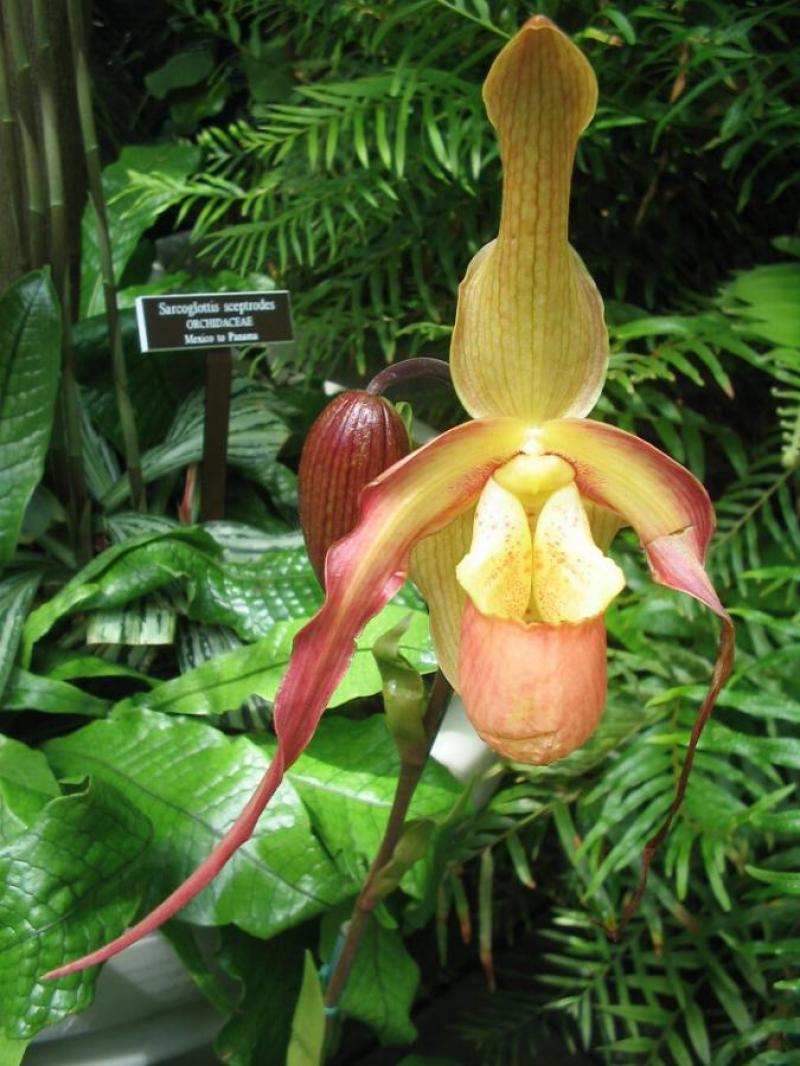Sarcoglottis sceptrodes
Also known as: The The Sceptre or Sarcoglottis purpusiorum Sarcoglottis powellii Sarcoglottis hunteriana in the subfamily: Spiranthoideae
Native to: Belize Nicaragua Panama
General Information
The The Sceptre is a large warm growing lithophytic or terrestrial orchid belonging to the sub family Spiranthoideae native to Belize, Nicaragua and Panama.
Plant Description
Each new growth has numerous thick erect, elliptic, oblong shaped leaves that grow to 7-25cm long
Flowers
Numerous fragrant blossoms appear
Fragrance
The orchid is fragrant.
Substrate(s)
- Fine
- Bark
- Charcoal
- Treefern
- Spaghnum Moss
- Perlite
- Sand
Care Notes
These orchids have a fine root system that can quickly die back if left dry for too long, but also does not like to be kept wet, so water regularly but ensure that the mix is dry before watering.
Fragrant:- IsFragrant
Climate
Grows at low to high elevations. Rainfall ranges from 1mm to 208mm per day, heaviest in June and lightest in March. Humidity ranges from 59% to 84%, highest in August and lowest in April. Temperature ranges from 18C to 32C, highest in April (21C to 32C) and lowest in January (18C to 28C).
Fertiliser
Apply liquid based fertiliser per recommended directions. They can benefit from a high phosphate fertiliser leading up to flowering season, followed by a high nitrogen fertiliser when new growth appears, and a balanced fertiliser in other times. These orchids can also tolerate slow release fertiliser applied 1-2 pellets per cup (250ml) of media.
Use balanced fertiliser during Spring and Summer. Apply fertiliser regularly at half strength year round. Use a high Nitrogen fertiliser during Spring and Summer. Use a high Phosphorous fertiliser during Summer.Potting
This orchid prefers a fine, well draining media. Avoid commercial potting mixes as they may have 'wetting agents' that retain water for too long. A simple mix made up of 20% sand, 50% peat or moss, with the remaining 30% made up of decomposed bark and leaf litter would be adequate. Adding some charcoal to the mix will also help it last longer.
Repotting depends on how wet the media is usually. Every 2-3 years would suffice, or whenever the media shows signs of clumping, staying wet for too long, or smells foul.
Repotting is best done annually.












